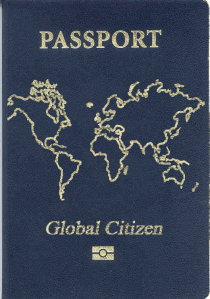The German sociologist, Ulrich Beck, has made key contributions to ideas of how to understand the global in recent times.
His understanding of cosmopolitanism is rooted in how current academic discourse is concerned with theorising about the organisation and reconstruction of social and cultural life within a global framework. Technological advances through cyber communication, economic interdependency, global media coverage, political cooperation and the rise of multiculturalism draw attention to an underlying feature of contemporary times eloquently summed up by Asad as the ‘conquest of space’ (Asad 1982: 13); highlighting the interconnectedness between societies, where the local becomes global and the global local (Beck 2002). Coupled with the post 9/11 perceived ‘threat’ of terrorist attacks and the environmental risk factors (Beck 2010) this ‘conquest of space’ calls for a communal (understood globally) and cooperative response. Cosmopolitanism[1] is thus a rethinking of how society, and, by extension, individuals are understood to enable an exploration of the effects these changes bring and to facilitate a well-informed and well-deliberated response. Continue reading →

